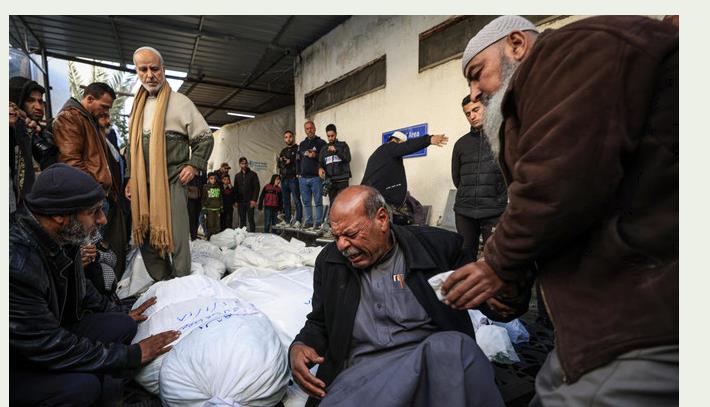
GENEVA – Israel’s multiple bombings of a financial institution in Lebanon were illegal attacks on civilian objects under international humanitarian law, an independent human rights expert said today.
“International humanitarian law does not permit attacks on the economic or financial infrastructure of an adversary, even if they indirectly sustain its military activities,” said Ben Saul, the Special Rapporteur on the promotion and protection of human rights and fundamental freedoms while countering terrorism.
Israel warned publicly in advance that it would attack offices associated with a specific financial institution, which Israel says finances the Hezbollah organisation: “The purpose of this strike is to target the ability of Hezbollah’s economic function both during the war but also afterwards to rebuild and to rearm.”
The financial institution provides interest-free loans and undertakes charitable activities, counts thousands of customers in its clientele and has numerous bank branches in Lebanon.
Saul reiterated that in armed conflict, only “military objectives” can be attacked, defined as objects that effectively contribute to military action and whose destruction “offers a definite military advantage.” Unlike fighters or weapons, the mere economic activities of an adversary do not effectively contribute to military action, he said.
“Bombing banks obliterates the distinction between civilian objects and military objectives which is fundamental to protecting civilians from violence. It opens the door to ‘total war’ against civilian populations, where fighting is no longer limited to attacking militarily dangerous targets,” the expert said. “Such attacks jeopardise the right to life”.
He warned that international counter-terrorism law does not authorise military attacks to prevent alleged terrorist financing or money laundering.
“Bombing banks is not a lawful solution to the challenges of financial crime and regulation,” Saul said.
All states have obligations under international law to take administrative and criminal law measures to prevent and suppress terrorist financing and money laundering.
These attacks are the latest escalation of violence in Lebanon over the past year, with over 2,400 people killed and 1.2 million displaced, and 59 people killed in northern Israel and Syria’s Golan Heights, occupied by Israel.
“The parties must immediately cease fire, to preserve civilian lives and restore peace,” the Special Rapporteur said.
*The expert: Ben Saul, Special Rapporteur on the promotion and protection of human rights and fundamental freedoms while countering terrorism
The Special Rapporteurs are part of what is known as the Special Procedures of the Human Rights Council. Comprising the largest body of independent experts in the UN Human Rights system, Special Procedures is the general name of the Council"s independent fact-finding and monitoring mechanisms that address either specific country situations or thematic issues in all parts of the world. Special Procedures experts work on a voluntary basis; they are not UN staff and do not receive a salary for their work. They are independent from any government or organization and serve in their individual capacity.
UN Human Rights, country page: Israel, Lebanon
For more information and media requests, please contact Karen Reyes Tolosa karen.reyestolosa@un.org and hrc-sr-ct@un.org
For media enquiries regarding other UN independent experts, please contact Dharisha Indraguptha (dharisha.indraguptha@un.org) or John Newland (john.newland@un.org)
Follow news related to the UN"s independent human rights experts on X: @UN_SPExperts










